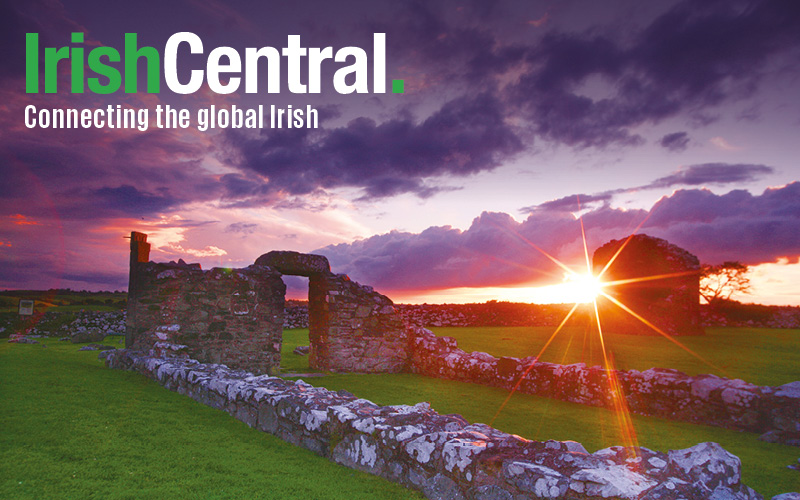County Mayo Foundation partners with Safe Home Ireland to raise awareness and raise funds towards publication of a Welcome Home information guide, as well as additional resources for outreach purposes.
Returning “home” for some older emigrants who left Ireland several decades ago is a lifelong dream. For younger Irish people living abroad, going back home is the chance to raise their children in the place where they grew up and to be closer to friends and family.
This Christmas season, a time when many Irish people return home to visit family, the County Mayo Foundation was happy to partner with Safe Home Ireland.
The not-for-profit organization, which is based in Mulranny, Co. Mayo, offers home visitation services together with an ongoing transition, integration support, and advice to Irish emigrants across the globe who are contemplating the life-changing decision to return to Ireland.
Read more: How to get an Irish passport
Since its founding in 2000, Safe Home Ireland has helped over 2,000 people return “home” to live.
“For the majority, their return was a positive lifelong dream and could not have been fulfilled without the intervention and support of Safe Home Ireland,” says Karen McHugh, the agency’s CEO.
The County Mayo Foundation is hoping to raise awareness among the Irish diaspora and provide support to Safe Home Ireland with funding that will go toward the publication of a Welcome Home information guide, as well as additional resources for outreach purposes.
“Much reference is made to the ‘forgotten Irish,’ often depicted as older, vulnerable emigrants who still live abroad,” says McHugh.
“In our experience, those who return home having spent a lifetime in exile can also feel forgotten, isolated and an outsider in the communities that they return to, as they try to re-adjust to living back in Ireland once more.”
This is why providing prospective returnees with up-to-date, accurate information in advance is key to them making an informed decision, she explains.
In counseling applicants, McHugh says it’s important that they do their homework first, plan their move well in advance and be prepared for the emotional challenges involved in moving home.
“This is particularly important if they have lived abroad for a long time or if they were not born in Ireland,” she cautions. “Ireland has changed, as have they, and their return should be treated as a new immigration experience.”
Read more: Annie Moore was the first immigrant through Ellis Island in 1892
Safe Home Ireland’s services are not just limited to seniors, though. It helps emigrants of all ages and all circumstances, says McHugh.
The agency, which gets the majority of its funding from the Emigrant Support Programme of the Department of Foreign Affairs and Trade, provides up-to-date information on housing, welfare issues, healthcare, rights, entitlements, banking, and more.
In recent years, some returning emigrants have been unprepared to navigate government agencies. That resulted in difficulty obtaining driving licenses, social welfare payments, accessing GPs and healthcare, housing, and car insurance, along with the unexpected cost of third-level education.
Returning Irish emigrants who are resuming a previous residence in the state may be considered habitually resident on arrival, explains McHugh. However, she also stresses the importance of bringing home a good “paper trail” of documentation to show that ties have been severed abroad.
“This, together with being able to show connections to/in Ireland, will be key to meeting habitual residency requirements,” she adds.
In the U.K., Safe Home Ireland representatives visit applicants in their homes, providing them with much-needed information and reviewing the housing application process in detail.
She says the agency would be open to doing the same in the U.S. There has been an increase in inquiries from U.S.-based emigrants this year, as well as those who have returned home.
Returning emigrants who apply for housing assistance must be Irish-born, living abroad and aged 57 and above. They must also be capable of independent living, have resided in rented accommodation abroad, and prove that they are unable to provide housing for themselves in Ireland based on their current income and/or savings.
Once emigrants return to Ireland, assistance from Safe Home Ireland is ongoing and includes referrals to local support services, as well as assistance filling out paperwork and determining eligibility for benefits.
“We at Safe Home Ireland are delighted and honored to work with and be supported by the Mayo Foundation,” says McHugh.
“This is an exciting new venture for us, which we hope will advance our profile in the U.S., as well as reach out to people living there with Irish and Mayo connections.”
Donations can be made directly on the County Mayo Foundation website at countymayofoundation.org/safe-home-ireland.
Read more: Huge barriers facing Irish emigrants coming home to Ireland




Comments